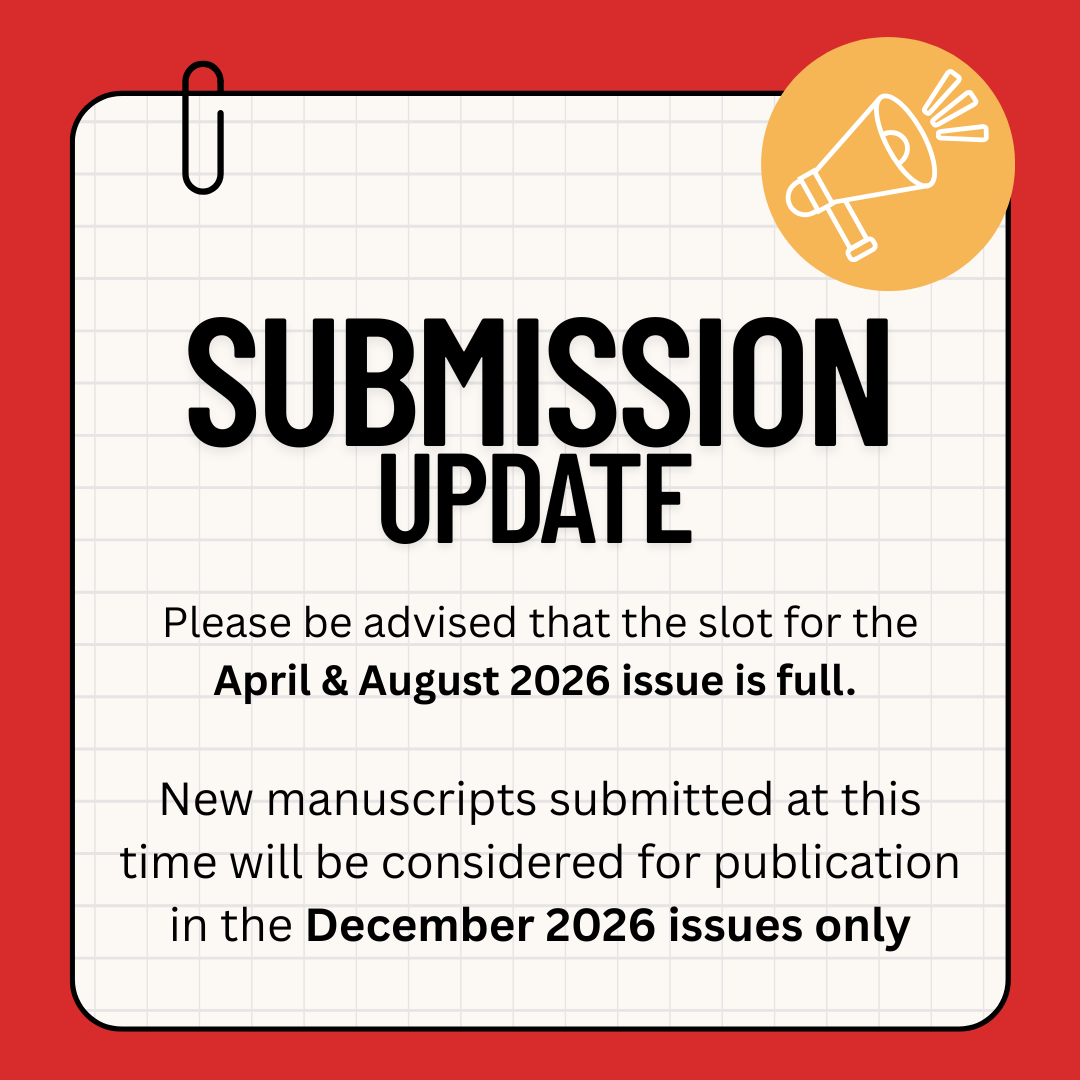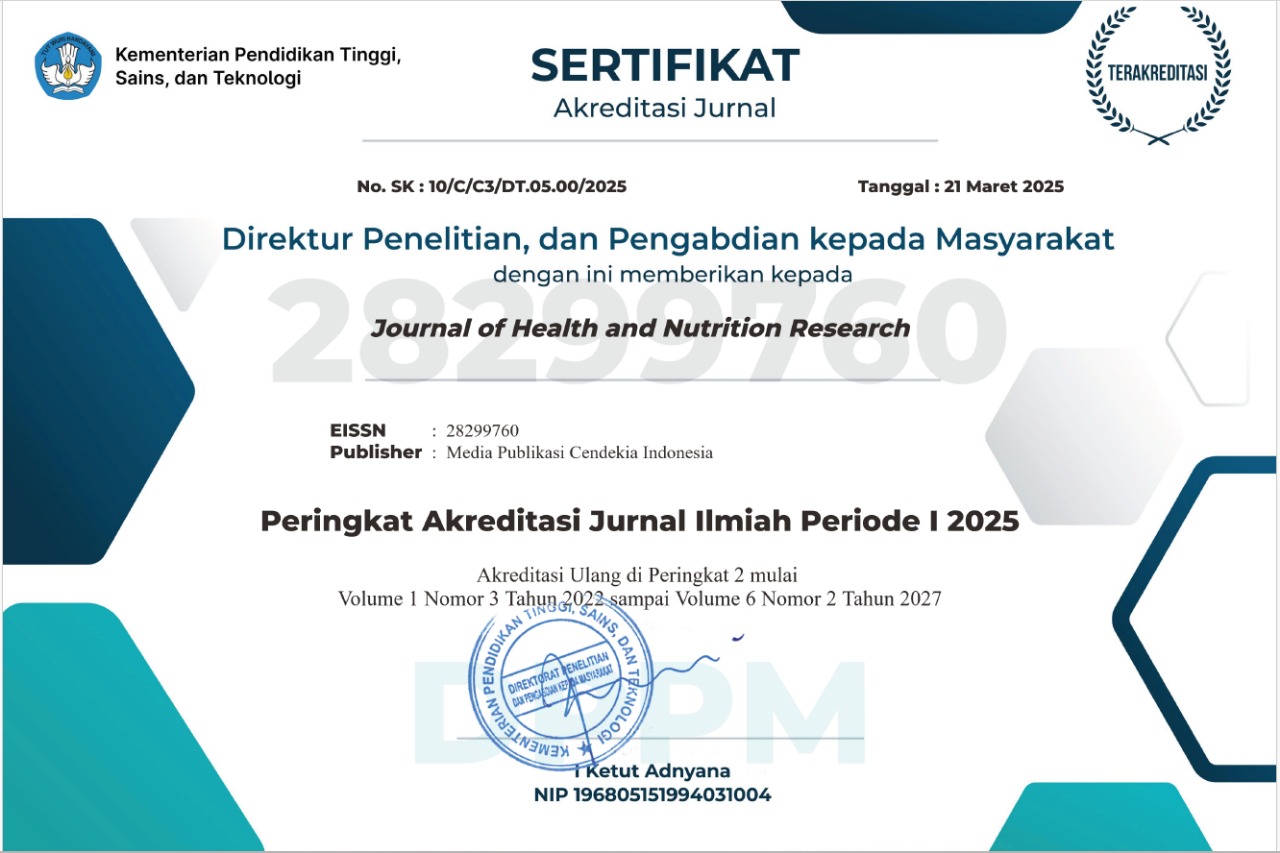Optimizing Emotional Intelligence as a Preventive Strategy Against Immune System Dysfunction in the Elderly
Keywords:
Emotional Intelligence, Immunoscience, Elderly, Psychoneuroimmunology, Preventive HealthAbstract
Aging is marked by physiological and psychological changes, including diminished immune function that increases susceptibility to infections and chronic diseases. This study explores the role of Emotional Intelligence (EI) in preventing immune system dysfunction among the elderly using a mixed-methods sequential explanatory design. Quantitative data were collected through surveys assessing EI and immune biomarkers (IL-6, CRP, cortisol), while qualitative interviews explored emotional regulation strategies and perceived impacts on immune health. The results revealed a significant inverse correlation between EI levels and inflammatory markers, including IL-6 (r = -0.45, p < 0.01) and CRP (r = -0.38, p < 0.05). Participants with higher EI scores also demonstrated more stable cortisol rhythms and better vaccine response rates (p < 0.05). Results show that higher EI levels in older adults are linked to lower inflammation, greater stress resilience, and improved immune homeostasis. These findings suggest that EI acts not only as a psychological asset but also as a physiological buffer, modulating neuroimmune pathways crucial for systemic health in aging. Qualitative insights highlighted adaptive emotional regulation strategies—such as mindfulness, proactive coping, and emotional reframing—as key contributors to immune resilience. Social connectedness, self-awareness, and stress management emerged as vital components of psychological and physiological well-being. This study advocates for integrating EI-based interventions—such as mindfulness training, emotional coaching, and social-emotional learning—into geriatric care. By adopting a holistic biopsychosocial model, EI can serve as a strategic tool for enhancing immune function and overall well-being among older adults.
Downloads
References
WHO. World report on ageing and health [Internet]. 2022. Available from: https://www.who.int/publications/i/item/9789241565042
Fulop T, Witkowski JM, Olivieri F, Larbi A. The integration of inflammaging in age-related diseases. In: Seminars in immunology. Elsevier; 2018. p. 17–35.
Franceschi C, Garagnani P, Parini P, Giuliani C, Santoro A. Inflammaging: a new immune–metabolic viewpoint for age-related diseases. Nat Rev Endocrinol. 2018;14(10):576–90.
Organization WH. World report on ageing and health. World Health Organization; 2015.
DeVido J, Hirsch CH, Sanger N, Rosic T, Samaan Z, Bourgeois JA. Substance Use Disorders. In: Geriatric Psychiatry: A Case-Based Textbook. Springer; 2024. p. 379–406.
Khan HTA, Addo KM, Findlay H. Public health challenges and responses to the growing ageing populations. Public Heal Challenges. 2024;3(3):e213.
Gloger EM, Smith GT, Segerstrom SC. Stress physiology and physiometrics. In: Handbook of research methods in health psychology. Routledge; 2020. p. 127–40.
Kuhlman KR, Chiang JJ, Bower JE, Irwin MR, Cole SW, Dahl RE, et al. Persistent low positive affect and sleep disturbance across adolescence moderate link between stress and depressive symptoms in early adulthood. Res Child Adolesc Psychopathol. 2020;48:109–21.
Mayer JD, Salovey P. Mayer-Salovery-Caruso emotional intelligence test. Multi-Health Systems Incorporated Toronto; 2007.
Laborde S, Brüll A, Weber J, Anders LS. Trait emotional intelligence in sports: A protective role against stress through heart rate variability? Pers Individ Dif. 2011;51(1):23–7.
Campo M, Laborde S, Mosley E. Emotional intelligence training in team sports. J Individ Differ. 2016;
Nicoloro-SantaBarbara J, Lobel M, Wolfe D. Psychosocial impact of mast cell disorders: pilot investigation of a rare and understudied disease. J Health Psychol. 2017;22(10):1277–88.
Mayang NR. The Relationship Between Emotional Intelligence and Student Adaptability. Educ Prax J. 2025;1(1):36–46.
Zhang Q, Yi J, Wu Y. Oxidative stress and inflammation mediate the association between elevated oxidative balance scores and improved sleep quality: evidence from NHANES. Front Nutr. 2024;11:1469779.
Favalli EG. Understanding the role of interleukin-6 (IL-6) in the joint and beyond: a comprehensive review of IL-6 inhibition for the management of rheumatoid arthritis. Rheumatol Ther. 2020;7(3):473–516.
Dunn TJ, Dimolareva M. The effect of mindfulness-based interventions on immunity-related biomarkers: a comprehensive meta-analysis of randomised controlled trials. Clin Psychol Rev. 2022;92:102124.
Aldwin CM, Igarashi H, Gilmer DF, Levenson MR. Health, illness, and optimal aging: Biological and psychosocial perspectives. Springer Publishing Company; 2017.
Social Aniaton. Assessment Of The Scale Up Of Emotional Demonstrations In Indonesia. 2023;
Austin T. Stress and Performance Anxiety Intervention for Musicians: A Biofeedback and Compassion Focused Therapy Intervention. Brigham Young University; 2020.
Burback L, Brult-Phillips S, Nijdam MJ, McFarlane A, Vermetten E. Treatment of posttraumatic stress disorder: A state-of-the-art review. Curr Neuropharmacol. 2024;22(4):557–635.
Reynolds 3rd CF, Jeste D V, Sachdev PS, Blazer DG. Mental health care for older adults: recent advances and new directions in clinical practice and research. World Psychiatry. 2022;21(3):336–63.
Marks DF, Murray M, Locke A, Annunziato RA, Estacio EV. Health psychology: Theory, research and practice. 2024;
Campbell S, Greenwood M, Prior S, Shearer T, Walkem K, Young S, et al. Purposive sampling: complex or simple? Research case examples. J Res Nurs. 2020;25(8):652–61.
Gravesande J, Richardson J, Griffith L, Scott F. Test-retest reliability, internal consistency, construct validity and factor structure of a falls risk perception questionnaire in older adults with type 2 diabetes mellitus: a prospective cohort study. Arch Physiother. 2019;9:1–11.
Ramasubramanian S. Mindfulness, stress coping and everyday resilience among emerging youth in a university setting: a mixed methods approach. Int J Adolesc Youth. 2017;22(3):308–21.
Braun V, Clarke V. Using thematic analysis in psychology. Qual Res Psychol. 2006;3(2):77–101.
Li C, Wu J, Jiang L, Zhang L, Huang J, Tian Y, et al. The predictive value of inflammatory biomarkers for major pathological response in non-small cell lung cancer patients receiving neoadjuvant chemoimmunotherapy and its association with the immune-related tumor microenvironment: a multi-center study. Cancer Immunol Immunother. 2023;72(3):783–94.
McEwen BS, Stellar E. Stress and the individual: Mechanisms leading to disease. Arch Intern Med. 1993;153(18):2093–101.
Schutte NS, Keng SL, Cheung MWL. Emotional intelligence mediates the connection between mindfulness and gratitude: A meta-analytic structural equation modeling study. Mindfulness (N Y). 2021;12:2613–23.
Kuhlman KR, Chiang JJ, Bower JE, Irwin MR, Seeman TE, McCreath HE, et al. Sleep problems in adolescence are prospectively linked to later depressive symptoms via the cortisol awakening response. Dev Psychopathol. 2020;32(3):997–1006.
Zhang W, Adegbola O. Emotional intelligence and public relations: An empirical review. Public Relat Rev. 2022;48(3):102199.
Fulop T, Larbi A, Dupuis G, Le Page A, Frost EH, Cohen AA, et al. Immunosenescence and inflamm-aging as two sides of the same coin: friends or foes? Front Immunol. 2018;8:1960.
Keefer K V, Parker JDA, Saklofske DH. Emotional intelligence and physical health. In: Assessing emotional intelligence: Theory, research, and applications. Springer; 2009. p. 191–218.
Vinje HF, Langeland E, Bull T. Aaron Antonovsky’s development of salutogenesis, 1979 to 1994. Handb Salut. 2017;25–40.
Mrisho DH, Mseti S. Emotional intelligence: Concept, theoretical perspectives and its relevance on job performance. East African J Interdiscip Stud. 2024;7(1):28–37.
Delhom I, Satorres E, Meléndez JC. Emotional intelligence intervention in older adults to improve adaptation and reduce negative mood. Int Psychogeriatrics. 2022;34(1):79–89.
Wilson CA, Saklofske DH. The relationship between trait emotional intelligence, resiliency, and mental health in older adults: the mediating role of savouring. Aging Ment Health. 2018;22(5):646–54.
Bru-Luna LM, Martí-Vilar M, Merino-Soto C, Cervera-Santiago JL. Emotional intelligence measures: A systematic review. In: Healthcare. MDPI; 2021. p. 1696.

Published
How to Cite
Issue
Section
Copyright (c) 2025 Husnan Husnan, Siti Mona Amelia Lestari, Thika Marliana, Annisa Tri Yustita, Loso Judijanto

This work is licensed under a Creative Commons Attribution-NonCommercial-ShareAlike 4.0 International License.


















